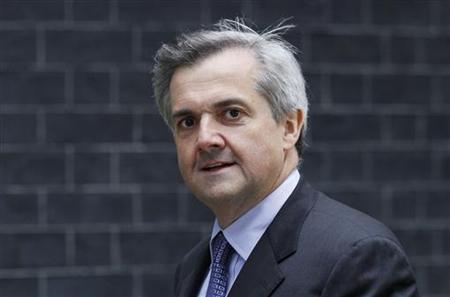Rising Energy Bills Are the Fault of the Government, So They Blame the Energy Firms

British Gas owner Centrica Plc has responded to mounting criticism from politicians about high energy bills by pledging not to raise its energy prices this winter.
Politicians of all colours have recently taken to attacking the energy companies, with Labour Party leader Ed Miliband even describing the energy market as "rigged".
Meanwhile in Government, the Liberal Democrat Energy and Climate Change Secretary, Christopher Huhne, has said that he would be "getting tough" on energy companies.
Perhaps aware that another cold winter is likely to produce unpleasant surprises for recession-hit consumers when they get their energy bills in the next few months, politicians seem intent on blaming energy companies for rising bills, just as they blamed the bankers (who politicians decided to bail out) for the recession.
The energy companies have defended themselves saying that rising energy demand worldwide is the prime driver of increasing prices. However, so far the companies have refrained from seriously attacking the Government's climate change policies, which also contribute to higher household energy bills.
According to the Department of Energy and Climate Change's own figures, around 12 per cent, or £140.23, of an average household's annual gas and electricity bill last year (estimated at £1,103 in total) went towards the Government's climate change policies or on VAT.
At the same time the amount taken from the average annual household energy bill that went towards company supplier costs and margins was around 15 per cent, or £170.57. The remaining 73 per cent was accounted for by wholesale energy costs and transmission, distribution and metering costs.
So yes it seems the energy companies could be doing more to help consumers, although doing so would no doubt hurt their margins, but the Government claims almost as much for their own coffers as the energy companies do for their margins.
Hence it would seem reasonable for the Government to consider reducing its own contribution to rising energy bills, rather than claiming in their contemptible way that it's all the fault of the energy firms. They could for example make energy bills VAT exempt (VAT accounts for five per cent of the average energy bill), or even better it could stop funding it's climate change policies by stealth through energy bills. Such an act would have removed 12 per cent from the average household electricity bill last year and four per cent from the average gas bill.
However the Government (and the "Opposition" for that matter) resolutely refuses to even discuss the possibility of changing its policies and generally prefers not to talk about the subject. Could it be they don't want people to know how much they are paying towards this carbon stealth tax?
Meanwhile British Gas has announced a number of measures aimed at providing at least some relief to consumers.
As well as pledging not to raise its prices, British Gas said it would be launching a "Tariff Checker" that would allow consumers to check whether they are on the optimum deal.
In addition the company said it would be extending its offer of free insulation to customers until the end of March 2012.
Scottish & Southern Energy has also pledged not to raise prices until August next year.
These measures may provide some welcome help to a few households but still it seems likely that most consumers will be hit hard this winter and harder next winter.
Despite this the Government will almost certainly continue taking its substantial cut of household energy bills to pay for climate change policies, while continuing to rage against the energy companies who at least make some token effort to reduce the burden on consumers.
This continuation of government policy will no doubt be welcome to rich landowners who can get subsidies for wind farms of dubious efficiency on their land, as the father-in-law of a certain David Cameron apparently does, but for the non-landed classes it will just be an ever increasing burden.
© Copyright IBTimes 2025. All rights reserved.





















